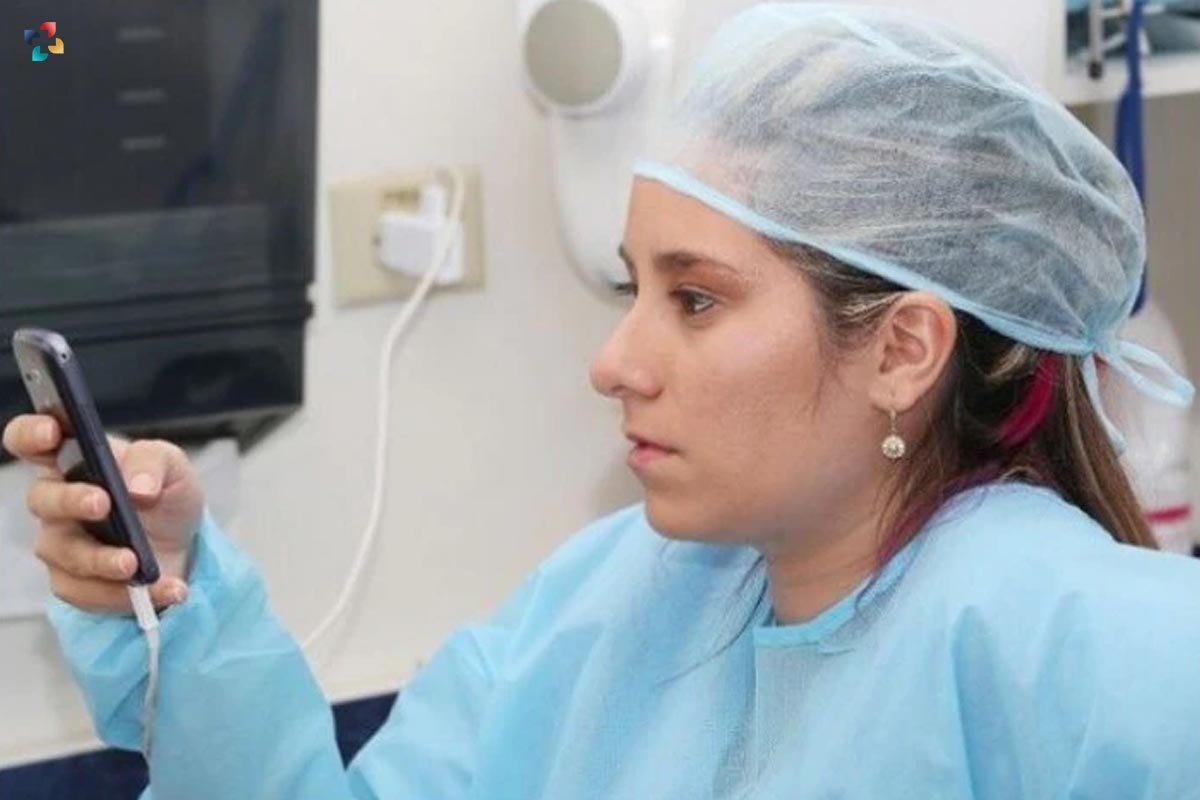Nurses play a crucial role in healthcare settings and are responsible for providing comprehensive care to patients. Their responsibilities encompass a wide range of tasks and duties aimed at promoting the well-being and recovery of individuals under their care. Here are some common types of nurse responsibilities for patients:
Here are 9 Types of Nurse Responsibilities for Patients;
1. The self-diagnosticate
You are familiar with this patient. This is the person who believes they have a rare African bird sickness after inputting a few ordinary cold symptoms into an internet symptom checker. If a diagnosis was so simple, medical practitioners would be out of work. Thankfully, nurses are always hand to answer inquiries and amend diagnoses when they go too far.
“This patient is certain they have something unusual, fashionable, and tough to cure,” explains author Nick Angelis, CRNA, MSN. “They are often dissatisfied when they do not have numerous professionals asking intelligent questions to which they have previously prepared replies.”
2. The one with the obnoxious family
Here’s another one you’ll probably see. You know the routine: you enter a patient’s room full of visiting family members. All eyes are drawn to you. They ask you a slew of questions in an instant. Or they seek to speak for a completely competent family member in a mistaken effort to demonstrate their concern.

“Unlike everyone linked to them, these people are often kind and relaxed back,” Angelis explains. “Family members often disregarded them until they were really ill and are now attempting to make amends at your cost.”
The overbearing family of your patients can always be depended on to make your shifts interesting—sometimes emotional, sometimes dysfunctional, but never without a million questions.
3. The one to whom you get connected
You’ve been warned not to get emotionally involved with your patients, but the mind and heart don’t always agree. You’ll probably remember unique patients long after they’re gone. Some patients have a unique place in your heart, whether it’s because of their positive perspective or the way you connected before a major operation.
“Almost every nurse I’ve ever met has formed relationships with certain patients,” Teri Dreher, RN, CCRN, iRNPA, explains. “Nurses that really care for the wellbeing of their patients holistically will deliver more focused, deliberate, and attentive nursing care. Emotionally balanced nurses will be able to establish boundaries while providing professional, compassionate care and nurturing to their patients.” nurse responsibilities for patients include getting connected with patients.
4. The skeptic
These skeptical patients are always seeking a second viewpoint. They may arrive at their consultation with medical information gained through web research. This patient, on the other hand, is resistant to accepting any of your explanations or recommendations, questioning your every step.
“Sometimes you can’t blame them—if they’ve gone from doctor to doctor just to be hustled through the system and put on some prescription that works for most people,” Angelis says, “but if they were most people, they wouldn’t be seeking a fourth opinion.”
5. The person who never visits the doctor
You’re familiar with this patient—the grumpy spouse who was dragged into his visit by his anxious significant other. They’re seldom pleased to see you and believe their time would be better spent elsewhere: doing errands, completing that job at home, or any of a million other reasons. They also can’t recall the last time they got a checkup. In this condition, nurse responsibilities for patients play a vital role.
“This patient has had enough of hospital-acquired illnesses, mishaps, medicine allergies, and side effects, and treating symptoms rather than the fundamental reason,” Angelis adds. He goes on to identify two more categories of patients that fall into this category: those in denial who don’t want to accept they’re unwell, and those in good health who want to remain that way. They’re not glad to see you in any case, but you don’t take it personally.
6. The spoiled patient
“Their orange juice is more vital than the coding of the other patients, and don’t forget it!” Angelis cracks a joke. “To treat this patient this is important nurse responsibilities for patients, clear communication is necessary to prevent over-promising and unreasonable expectations.”

You know the type: this patient expects special care, becomes agitated by long wait periods, or arrives late for their appointment. They expect a five-star experience throughout their stay and may exhibit their diva side if things aren’t up to their high standards—and some seem to be late for their appointment.
“Some patients will not put down their mobile phones,” says Becker Ear, Nose & Throat Center nurse allergist Patricia Adamson, RN. “Treating them has proved to be quite tough.”
7. The person who believes they are the nurse
You’ll also see some of these patients during your career. They may have grown up in a household with a medical practitioner. They may have spent a summer working at a veterinary clinic, or their spouse could be a nurse responsibilities for patients. In any event, people believe they know enough to make appropriate medical judgments, regardless of how much your expert view disagrees.
“Their elementary knowledge is unhelpful because they believe they know enough to be consulted,” Angelis explains. “They’ll say things like, ‘My neighbor died after taking blood pressure medication, therefore I shouldn’t.'”
8. The ‘naturally’ selected patient
The selectively natural patient, ever the curious, seems to pick homeopathic medicines on a whim, but what they lack in selectiveness, they make up for in constancy.

“These are the people who take Tylenol at the first sign of a headache but then decide to try natural remedies,” Angelis explains. “They may substitute homeopathic for immunizations, but they have no problem bleaching and dying their hair every month or dumping chemicals on their yard to keep it weed-free.”
9. The one who constantly reminds you of why you do what you do.
Even on the most difficult days, when nothing seems to go right, there will always be patients who remind you of why you answered the call to nursing and took on the rigors and rewards of the profession.
These special patients come into your life, again and again, to remind you of why you first became a nurse and nurse responsibilities for patients, whether it’s the humbling moments of your toughest patients fighting for their lives, the patients who are truly grateful for your care, or simply knowing you made someone’s time in the hospital a brighter experience.
Bottom Line
You will face all kinds of types of nurse responsibilities for patients. While some patients will make you glad for choosing this profession, some will make you question your choices. No matter the type of patient you’re dealing with, fulfilling your nurse responsibilities for patients that will lead to a quick recovery is the key to a successful nursing career.
Also Read: 8 Characteristics of a Good Nurse











